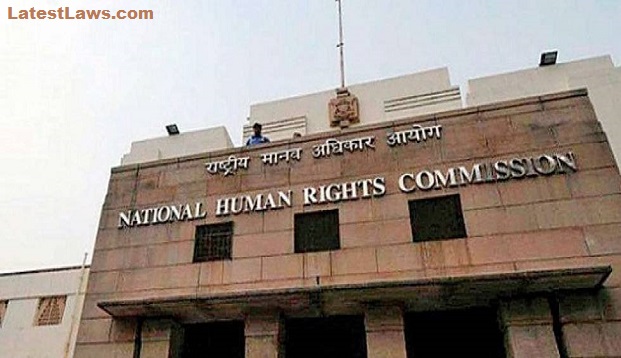NEW DELHI, May 14: A government hat so far has failed to protect the right of the living amidst the Covid crisis has been asked by the National Human Right Commission (NHRC) to enact a special legislation to uphold the “dignity and protect the right of the dead.”
Pained by the disturbing reports from all parts of the country about mishandling of the bodies of the Covid-19 victims, the NHRC issued the recommendation on Friday to enact the special legislation.
It has also recommended that there should not be mass burials/cremations or piling up of bodies during the transportation as it was in violation of the right to dignity of the dead.
The apex human rights body sent a detailed advisory to the ministry of home affairs, ministry of health and family welfare and states/union territories in this regard.
Asserting that Article 21 of the Constitution extends not only to living persons but also to the dead, the Commission said, “it is the duty of the State to protect the rights of the deceased and prevent crime over the dead body.”
Although there is no specific law in India for protecting the rights of the dead, NHRC has pointed out that there are several international covenants, Supreme Court and high court judgements as well as guidelines issued by various governments from time to time emphasizing on maintaining Covid-19 protocol and giving decent burial/cremation according to respective religious customs and practices.
The advisory asked authorities to urgently set-up temporary crematoriums in view of the large number of Covid-19 deaths and long queues seen at crematoriums.
It said use of electric crematoriums may be encouraged in order to avoid the health hazards emerging from the emission of smoke from burning pyres in large number; piling up of bodies during transportation or at any other place must not be allowed to happen and mass burial/cremation should not be allowed to take place as it is in violation of the right to dignity of the dead.
“In order to ensure that dignity is upheld during handling of bodies, the cremation/burial ground staff must be sensitized about proper handling of the body. Further, they need to be provided necessary safety equipment and facilities so that they may perform their duty efficiently without any fear or risk,” the advisory said.
It said the religious rituals that do not require touching of the body may be allowed such as reading from religious scripts, sprinkling holy water, etc, and in cases where the family members are not in a position to perform last rites as they themselves may be infected or are not willing for fear of getting infected, the state/local administration may perform the last rites of the body, taking into account the religious/cultural factors.
Not specific to Covid-19 victims, the human rights agency asked the Centre and states to maintain a district-wise digital dataset of (all) death cases for which it suggested that a dynamic web portal must be created.
It also said digital confirmation of all – Covid-19 or non-Covid19 deaths must be simultaneously updated in all documents such as bank account, Aadhar Card, insurance etc., wherever applicable, to prohibit the scope of any impersonation or illegal monetary transaction.
The NHRC further recommended that accurate identification of the body must be done by using different criteria for identification and the state authorities must ensure proper handling of the information about the dead and missing persons in disasters.
It said overcharging by ambulances must be regulated and staff handling such bodies must be fairly paid.
(Manas Dasgupta)

